Why these pictures mean so much to young refugees
- Published
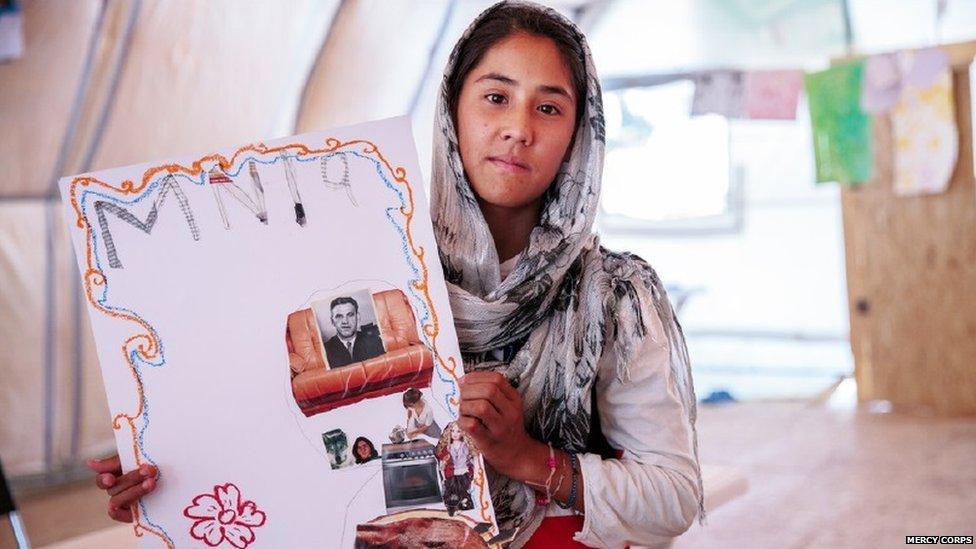
When Monica Rabii leaves art class, it reminds her to have hope.
She works in a refugee camp in Greece, managing all kinds of projects - from organising transportation to sorting out financial aid.
But it's art therapy classes - drawing, pottery, collage - with refugees which she says she finds special.
"Sometimes when I'm doing other tasks, it's hard to remember this feeling of hopefulness, this feeling of moving forward," she tells Newsbeat.
"But after one of those [art] sessions, you have this moment where you get to relieve this tension. That's a really great feeling."
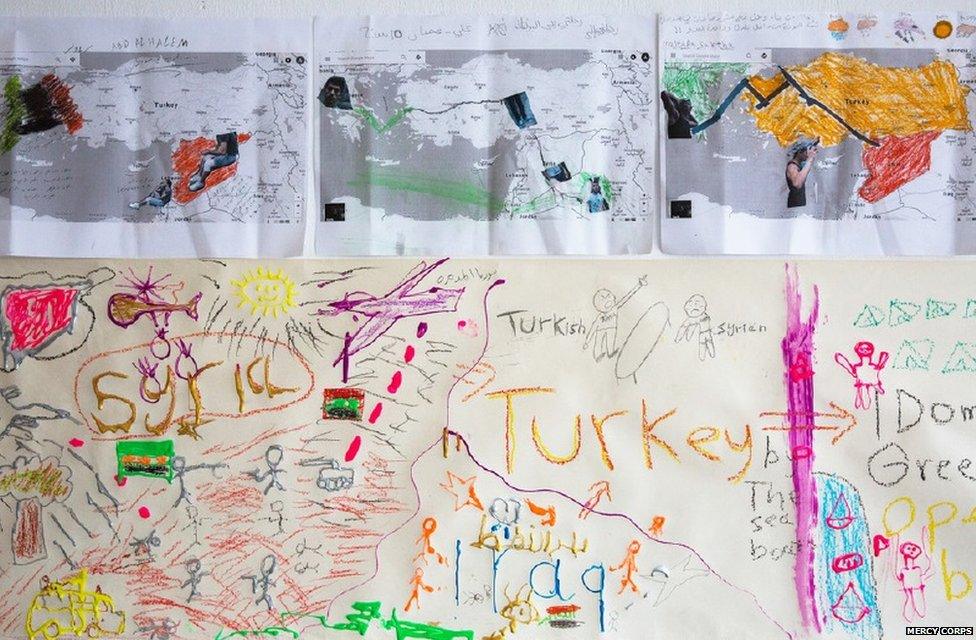
Art therapy at the camp caters to refugees aged between 15 and 24, and many of them have been through extreme hardships, says Monica.
Making art is the only way some young refugees can come to terms with the horrors of war.
One of the first classes they do involves drawing their journeys to the camps on a map.
It's designed to help them come to terms with what they've been through, travelling from countries like Syria and ending up in camps in Greece.
"It's to relieve the tension of what they've experienced and often haven't spoke of," says Monica Rabii, who works for the charity Mercy Corps.
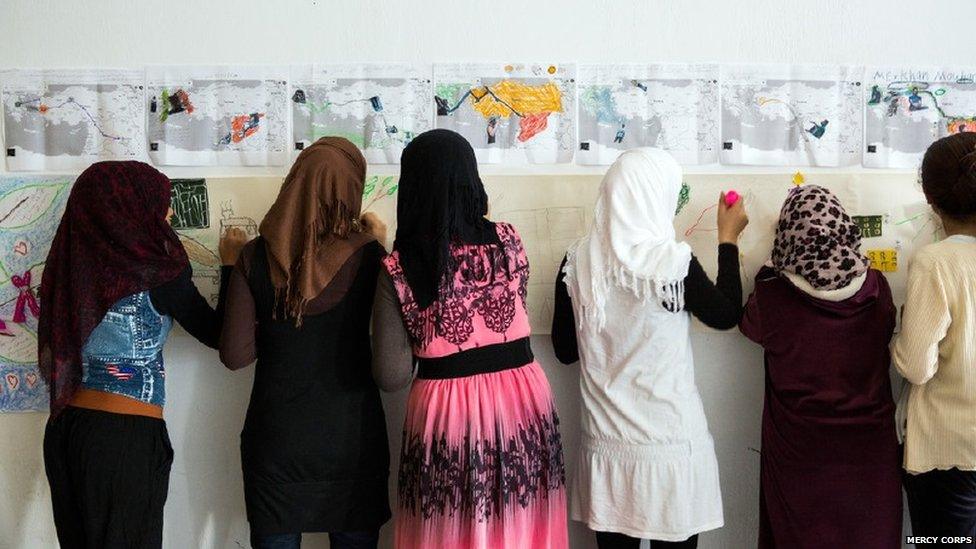
The other map project sees them drawing together as a group, charting the countries they've journeyed from and through and what happened to them along the way.
Monica says it helps them to bond.
"As they get more and more comfortable with their peers and the therapist and the environment, it's also a really important safe space in these camps," she says.
"I had a student say to me, 'It's not just the classroom that makes me feel normal again, that makes me feel like a student and not a refugee.'"
"He was saying it was the people in the classroom that make him feel safe to say whatever he wants.
"It cannot be underestimated how important something like this course can be for them."
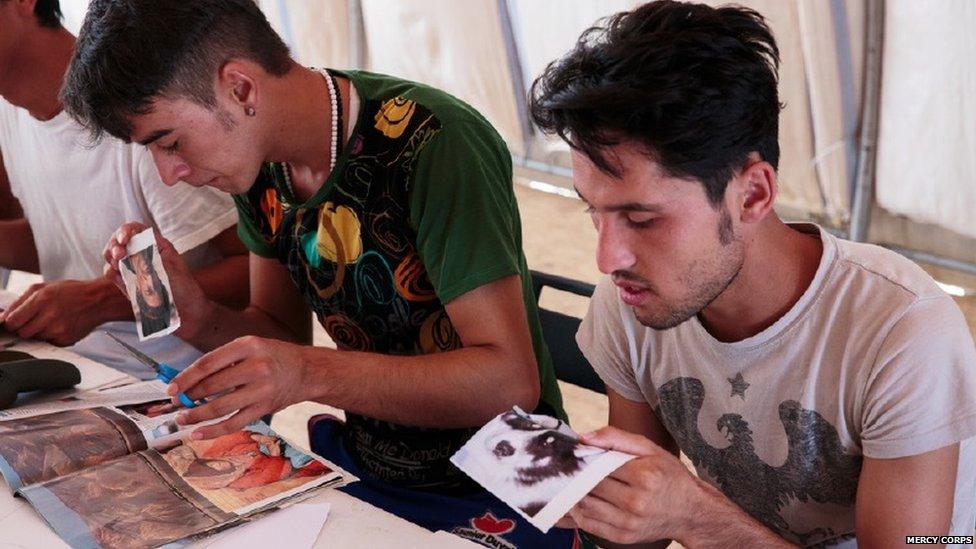
Mercy Corps communications manager Amy Fairbairn says she's aware of arguments that European countries like Greece - and the UK - should spend their resources on making sure their own inhabitants have adequate healthcare.
She says there are many charities doing great work in the UK but that Mercy Corps has an international focus and it's important for both kinds of work to be done.
"As we're seeing increasingly isolationist rhetoric, anti-refugee rhetoric, anti-global rhetoric, we see that it's even more important to make sure that we're looking after refugees and displaced people around the world, of which only 1.1 million are in Europe," she explains.
"Wellbeing is a right that everyone across the world has."
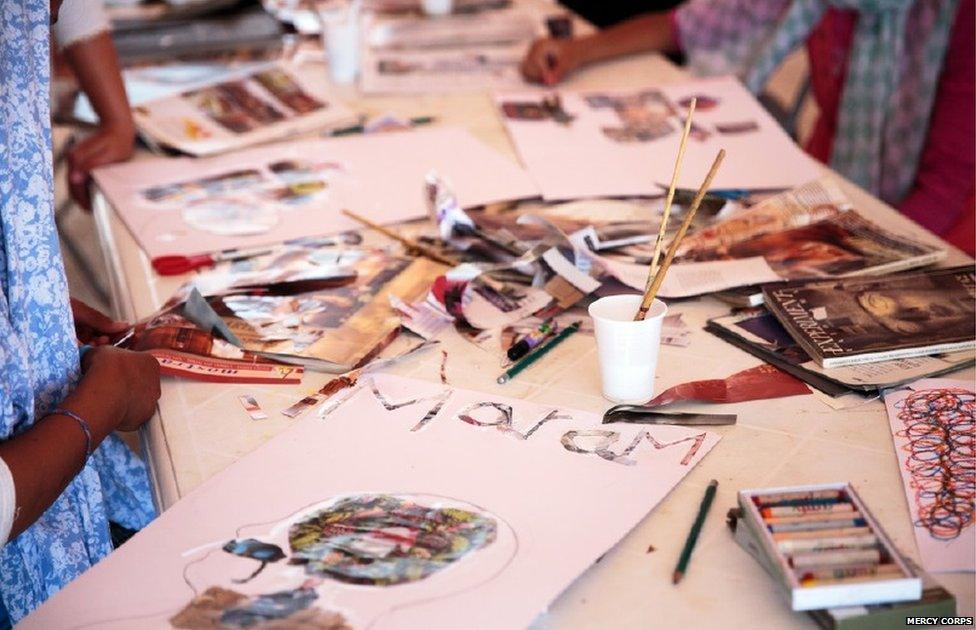
Many projects focus on helping children and families, and with teenagers and young adults being "overlooked", says Monica, there's a big risk of "alienation and despair".
Art therapy gives them something to take pride in, as well as helping them to open up and talk about their experiences.
It can also change their perspective.
When one girl was asked to take photographs of her everyday life in the refugee camp, she took a picture of her tent and showed it to her siblings, one older and one younger.
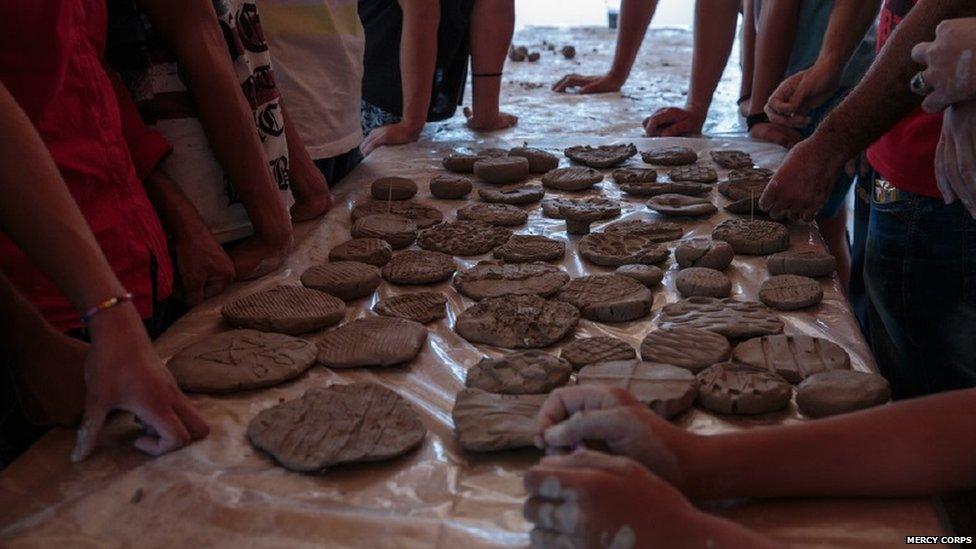
"The young boy told her that he saw his playroom, his house," says Monica.
"And then the older brother said, 'You're wrong. It's just our tent. It's not our house.'
"When she came back to class and she was giving her presentation, she said in that moment she realised that you can choose to see the better and you can choose to see the worst.
"It was liberating for her to realise she was making those choices, that it was in her hands."
Find us on Instagram at BBCNewsbeat, external and follow us on Snapchat, search for bbc_newsbeat